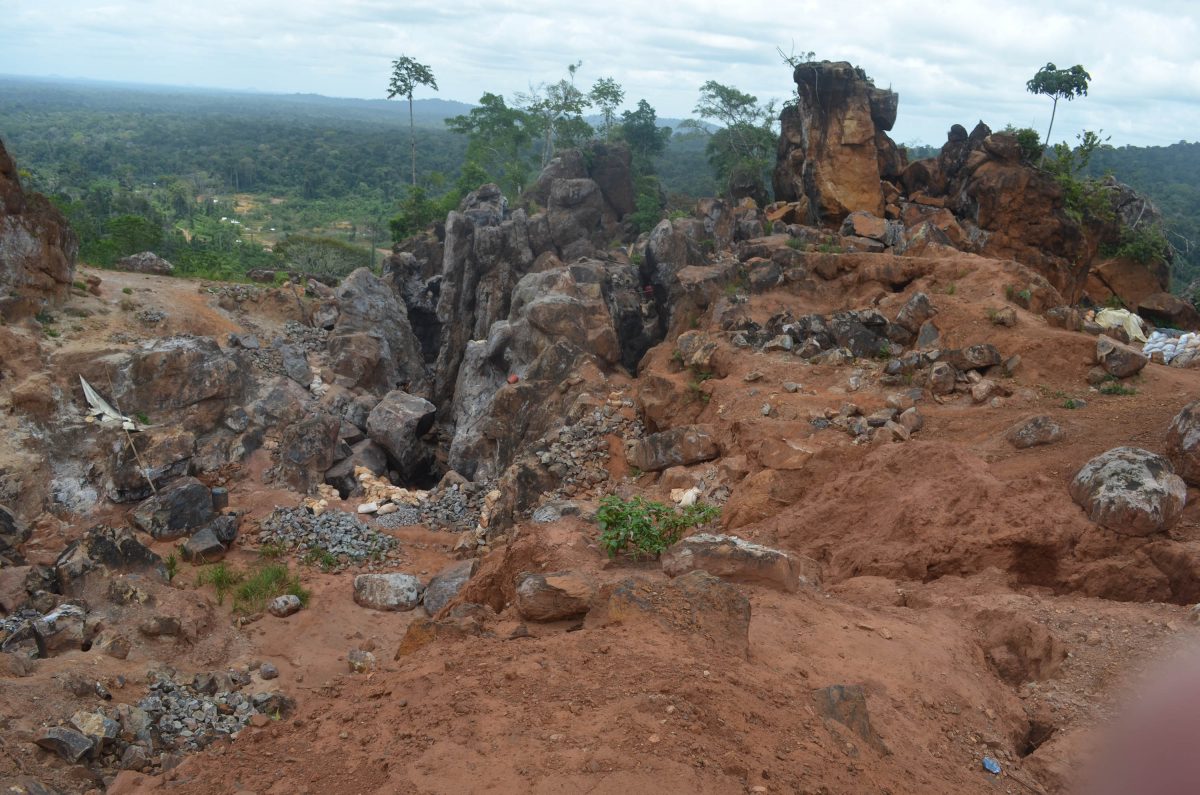“If our fight for basic human rights is seen as politics how should development happen?” Kid James of the South Rupununi District Council (SRDC) questioned in response to comments made by Minister of Natural Resources, Vickram Bharrat.
Bharrat on Thursday last suggested that the group’s criticism on an agreement to resume mining in the sacred Marudi Mountain is being made “handful of people who have political objectives and a political agenda.”
“I know there are a few comments but there is a handful of people who have political objectives and a political agenda who are asked by politicians to make comments in the negative against an economical benefit to the people in the Deep South of the Rupununi and the people of Region Nine,” Bharrat told this newspaper last week.
James, in a telephone interview yesterday, told Sunday Stabroek despite the view of the Minister, the fact remains that they were not included in the agreement and it is a gross violation of the Free, Prior and Informed Consent (FPIC) agreement.
“Yes the Minister had come and meet with us on several occasions to have this matter resolved but we were not included in the end. We are not a part of the agreement and we are a major stakeholder. The last agreement we were a part [of] but this time we are not,” James contended.
Taking a jab at the government, James said if anyone is guilty of playing politics, “it is them.” He stated that prior to the last community meeting with villagers, persons were going around with a paper “with a one liner getting people to sign that they are in agreement for mining the South.”
To his knowledge, he asserted, many villages in the South Rupununi are not in favour of mining in the region as they have witnessed the destruction of the environment first hand.
James, who resides in Aishalton, said that his village is not in agreement with mining and they have registered their concerns to the village council.
“If they want to allow six persons to talk how can they understand our issue? If they had allow us to talk at the meeting we would have gone till into the afternoon but the minister was not ready for that because he had to go…” the SRDC executive added as he sought to make the point that more than a “handful” of persons are disappointed with government’s approach to the issue.
At a village general meeting on Monday last, villagers requested to see a copy of the agreement signed between the Rupununi Miners Association, The Guyana Geology and Mines Commission and Romanex, Canadian-owned mining company Aurous.
Despite promises during the ministerial meeting three Saturdays ago to furnish the village with a copy of the agreement, they are still to receive a copy.
“We in government needed to strike a balance because people need to be gainfully employed. We had to find a balance,” Bharrat told Stabroek News when asked about the decision, in light of strong opposition by Indigenous activists.
The recent signing of the agreement to restart small-scale mining activities has been cited by its critics, including Deputy Speaker Lenox Shuman, as proof of government’s disregard for the rights of Indigenous communities.
Activists, who say some communities only learnt of the new agreement via a Ministry of Natural Resources Facebook post, say that the exclusion of Indigenous communities from having input on the resumption of mining operations violates their right to free, prior and informed consent, and they have called for government to scrap the deal and hold consultations.
The South Rupununi District Council (SRDC), which initially called attention to the agreement, has said the mining deal was concluded even though the GGMC is aware that “Marutu Taawa (Marudi Mountain) is a sacred place to the Wapichan people and that the area is subject to a pending application for extension of title by Aishalton Village. SRDC charged that GGMC made no attempt to ensure that the Aishalton Village Council, nearby villages, and SRDC, were involved in decision-making around mining activities on the mountain, as was done in the past.
Bharrat in his defence however countered that Marudi was one of the main income generators for the people in the Deep South of Rupununi and they were the ones that have been asking government for the resumption.
“[The] majority of the people in Region Nine, especially in the Deep South, depended on Marudi for an income and a livelihood. If you look in the Deep South, there are not much opportunities. To get agriculture out from Aishalton or Parabara and Deep South villages is a nightmare,” he said.
The Minister added that was that small miners were given strict rules for operating in the area, including that mercury must not be used and employment priority must go to nearby villagers.
“…We have mentioned that the small miners need to respect Indigenous people. If they employ people from the villages, they need to purchase from the people in Region Nine. With regard to environment, when they signed the agreement [they agreed] that mercury will not be used because that is one of the main concerns that was raised at the consultation,” he said.
A visit earlier this year to Marudi by Stabroek News revealed that gold mining activities in the area have caused damage to the environment, with several creeks and their ecosystems totally destroyed. The Mazoa Mountain, located within the Marudi mountain range, has also seen significant changes, with its peak completely flattened after a 2016 gold rush. Locust Creek was the latest geographical feature to have been destroyed by mining activities in the area.





